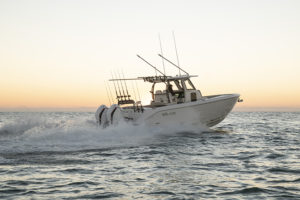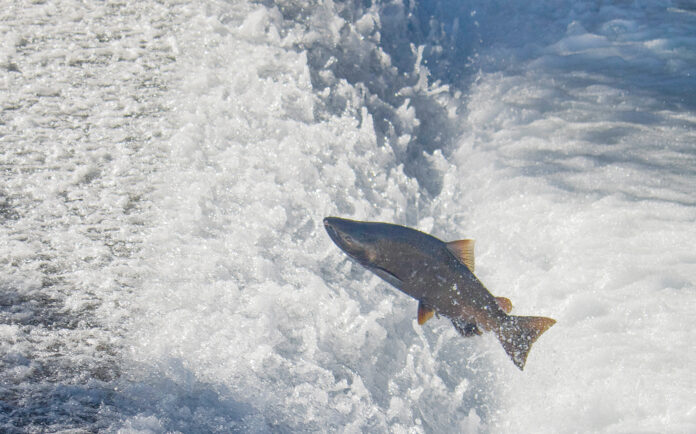Record rains this winter and spring on the West Coast couldn’t save the salmon season.
The Pacific Fishery Management Council, a quasi-federal body that oversees West Coast fisheries, recommended in early April to close the salmon season this year. NOAA Fisheries is expected to implement the closure through spring 2024.
Blame years of drought that has taken a toll on the Chinook salmon off the California and Oregon coasts. The salmon were unable to get up rivers and into reservoirs because of lower river levels and warmer water temperatures.
Commercial fisherman and recreational anglers were expecting the decision, but it still came as a blow to the $1.4 billion fishing industry. The last time the salmon season was canceled was in 2008 and 2009 when the West Coast was in another sustained drought.
“It’s a really painful conclusion to reach, but for a number of reasons, it’s probably the right decision,” Sarah Bates, a salmon captain out of San Francisco, told the Washington Post.
State and federal scientists point to the Sacramento River and Klamath River in Northern California, which expect the fewest Chinook salmon to trek up the rivers since the assessments started in 1997. The salmon hatch in streams and head to the sea to mature before returning to their birthplace to spawn and the adults die.
“Salmon flourish when we have very wet conditions,” Steve Lindley, fisheries ecology division director at the NOAA Fisheries’ Southwest Fisheries Science Center, told the Washington Post. “Cool temperatures are good for the eggs. They survive better. And when the juveniles then migrate to the ocean, if there are high flows, they survive much, much better.”
Between the Sacramento and Klamath rivers, scientists expect only 275,000 Chinook salmon to make the trek, just a fraction of the salmon needed to sustain healthy fisheries. While salmon fishing will be closed in California, there’s still a chance southern Oregon may allow limited salmon fishing for part of the season.
While the news isn’t good about the fisheries, scientists say the heavy rain that pummeled the West Coast should be good for the salmon over the next few years.



